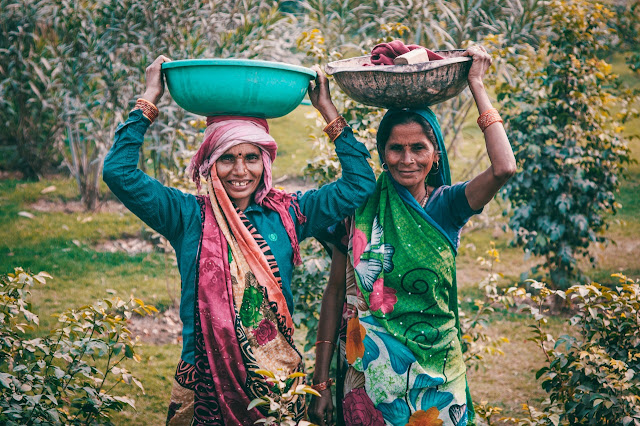Dear students
Welcome
Attendance in the online class is necessary for all of you. Minimum attendance
is needed to appear in the final semester exam as per the university
rules.
The relevant information and study materials will be available here as per
needed.
You can find your syllabus with this link or below in detail
https://drive.google.com/file/d/17CepDJmPNBJk2iGRb9X5ZJbJsz5SlQyy/
Course Objectives:
1. Indian Society: Images and Realities is an interdisciplinary introductory course to Indian society. It constitutes Indian society as an object of study through delineating the historical processes and ideological tensions that tentatively constitute this object. It proceeds to familiarize the students with constituent institutions and process of Indian society such as village, town, region, caste, class, religion family, gender and political economy. It concludes with a section that marks the ongoing conversations about Indian society.
2. This generic elective course may
serves as a foundational course for any graduate of the university as the
disciplinary knowledge it transmits brings reflexivity, criticality, multicultural
competence and ethical awareness essential for citizenship education of all
graduates.
3. It enables capacity to invoke
scientific and analytical attitude towards one’s one society and its ongoing workings and evolution.
It provides the cultural knowledge and research skills that would be necessary
for problem solving in Indian context.
4. The course works with fine and extremely well crafted sociological writing. In doing so it contributes to augmentation of their communication skills. Finally, the course provides the ethos and categories for lifelong learning about Indian society and history and a means to appreciate aspects of its culture in its proper context.
Course Learning Outcomes:
1. A familiarity with ideas of India in their social and
historical context.
2. An acquaintance with key institutions and processes of Indian society.
3. An ability to understand social institutions with sociological Imagination
with a critical and comparative spirit.
4. A preliminary understanding of sociological discourse on Indian Society.
5. A capacity to situate contemporary public issues pertaining to Indian society in the context of these enduring institutions, processes and contentions.
Study Here or Download and Study it
Course Outline
Course Content with Study Material
Unit 1. Ideas of India: Civilization, Colony, Nation and Society (3 Weeks)
Eck, Diana L. India: A Sacred Geography. New York: Harmony Books, 2012. Chapter 2. What is India? Pp.42 – 105
https://drive.google.com/file/d/1YSQI7YWXN_SQ2myF2qPTnTMqJzT4zO-E/
Unit 2. Institutions and Processes (8 Weeks)
2.1 Village, Town and Region
Breman, Jan. ‘The Village in Focus’ from the Village Asia Revisited, Delhi:
OUP 1997. Pp. 15-64
https://drive.google.com/file/d/1khN3FuqNrNP4E7uiQFtnsjAZr9Rj1E2-/
Cohn, Bernard, An Anthropologist Among Historians and Other Essays, Delhi: OUP, 1987, Chapters. 4 and 6. Pp.78-85 & 100 – 135
https://drive.google.com/file/d/1Q0vRFXJSixDRRBoQg9s14I7_wYpBRjIy/
2.2 Caste, Class and Religion
Zelliot, Eleanor. ‘Caste in Contemporary India’, in Robin Rinehart
ed. Contemporary Hinduism: Ritual, Culture, and Practice, Santa Barbara:
ABC-Clio, 2004. Pp. 243 – 268
https://drive.google.com/file/d/1HX0bniiftnRfJEfEBfBhyi6rbSEvercr/
Alavi, Hamza. And John Harriss. Sociology of “Developing Societies”: South Asia. London: Macmillan, 1989. Pp. 134-147, and 268 – 275
Page No. 134-147, Gail Omvedt, Class, Caste and Land in India An Introductory Essay, in, Alavi & Harriss, 1989, Sociology of “Developing Societies”
https://drive.google.com/file/d/1yQF_YNPrEM5h0nMpJ06zVF9smTGTm1Ex/
Page No. 268-275, Jan Berman, Particularism and Scarcity: Urban Labour Markets and Social Classes, in Alavi & Harriss, 1989, Sociology of “Developing Societies”
https://drive.google.com/file/d/11CrkfcJCaEUDbiKdDMlq3nEXAofHEU5c/
Mines, Diane P. ‘The Hindu Gods in a South Indian Village’ in Diane P. Mines and Sarah Lamb (Eds.) Everyday Life in South Asia, Indianapolis: Indiana University Press. 2010, Pp. 219 –248
2.3 Family and Gender
Dube, Leela. ‘On the Construction of Gender: Hindu Girls in
Patrilineal India’, Economic and Political Weekly, Vol. 23, No. 18 (Apr.
30, 1988), pp. WS11-WS19
https://drive.google.com/file/d/1rGSNpDhab18D9hDMboGQLkbcVE9mStZs/
Gray, John N. & David J. Mearns. Society from the Inside Out:
Anthropological Perspectives on the South Asian Household. New Delhi: Sage,
1989. Chapter 3. (Sylvia Vatuk) Household Form and Formation: Variability and
Social Change among South Indian Muslims. Pp. 107-137
https://drive.google.com/file/d/1GOMDd8jkhc_18uNhKdf_FLtQdYjKz6DK/
2.4 Political Economy
Chatterjee, Partha. State and Politics in India. Delhi:
Oxford University Press, 1997. Introduction: A Political History of Independent
India. Pp. 1-39
https://drive.google.com/file/d/1XdhVgzoBiG_T_1L48yVe0U55CEp3ahka/
Unit 3. Critiques (3 Weeks)
Omvedt, Gail. Understanding Caste. New Delhi: Orient Black
Swan, 2011. Chapters. 5, 9, 11 and Conclusion. Pp. 30-38, 67 – 73, 83 – 90, 97
– 105
(Everyone must-read "Understanding Caste" by Gail Omvedt. Please purchase it from the given link above. This will also be helpful in the coming semester for students of Sociology, Political Science, History, and Literature (Hindi and English), even those who are pursuing Economics. - Anil Kumar.)
Jayawardena, Kumari. Feminism and Nationalism in the Third World, London: Verso, Chapter 6. Women, Social Reform and Nationalism in India. 2016
https://drive.google.com/file/d/1TaifX22QRQ4xF2o07Itsj3br9dUs5zAr/
Baruah, Sanjib. ‘Cultural Politics of Language, Subnationalism and Pan-Indiansim’ from India against Itself: Assam and the politics of Nationalism, New Delhi: OUP, 2001. Pp. 69-90
https://drive.google.com/file/d/1FB-yoC1HcS2YJYKHwu03gWC-eoLyzs4U/
Name of the Class: Bachelor of Arts, Honours,
Sociology, University of Delhi
Name of the Paper: General Elective 01, Indian
Society: Images and Reality
Anil Kumar | Student of Life World
Stay Social ~ Stay Connected
Study with Anil
Lecture, Study-Material, and More
Keep Visiting, Keep Curious
Study materials shared here for my students under fair use of copyright act, Government of India.







%20(53.8%20KB).jfif)



0 Comments